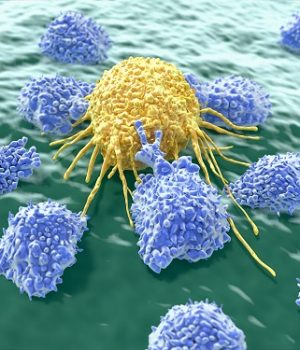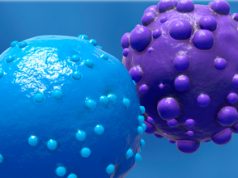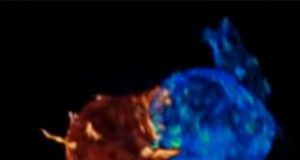Solid Tumor Research: Ongoing
CAR T-cell therapy has shown great success in hematologic malignancies, such as non-Hodgkin’s lymphoma (diffuse large B-cell lymphoma (DLBCL), follicular lymphoma), acute lymphoblastic leukemia (ALL), chronic lymphocytic leukemia (CLL), and multiple myeloma. Recent FDA approvals Kymriah (tisagenlecleucel) and Yescarta (axicabtagene ciloleucel) now make CAR T-cell treatment an option for blood cancers.
However, the reality is that most cancers seen in the clinic are solid tumors, like lung cancer, breast cancer, or colon cancer.
Utilizing CAR T-cell therapy to treat solid tumors has not been met with the success seen with blood cancers. In fact, many studies of solid tumors being treated with CAR T have failed to respond to treatment and toxicities have been serious.
Researchers are continuing to understand how CAR T-cell therapy, or other engineered T-cell options, can be more safely and effectively used to treat solid tumors. Areas under research include:
- Finding new tumor-associated antigens (TAAs) not found on healthy tissue.
- Continuing to research the inhospitable solid tumor micro-environment.
- Learning how the endogenous and engineered T-cell interacts with the solid tumor.
- Ongoing research into T-cell receptor (TCR) therapy.
Learn More: CAR T-Cell Therapy: A Healthcare Professional’s Guide – Mechanism of Action
What Tumors Are Under Study?
Yong and colleagues reported in 2017 that over 50 CAR T trials were ongoing or planned for solid tumors. Many of these studies are still in the early phase.
A few CAR T studies listed for solid tumors and associated antigens include:
- Neuroblastoma, metastatic melanoma and osteosarcoma directed against tumor antigen GD2
- Lung cancer, colorectal cancer, ovarian cancer, and pancreatic cancer directed against tumor antigen EGFR
- Glioblastoma targeting IL-13Rα2 or EGFRvIII
- Breast cancer, ovarian cancer, lung cancer, pancreatic cancer, and advanced sarcoma directed against tumor antigen HER2
- Hepatocellular cancer, squamous cell carcinoma of the lung directed against tumor antigen GPC3
And coming down the pike? T-cell receptor (TCR) therapy, another exciting investigational type of engineered immunotherapy, may demonstrate even higher success rates for solid tumors.
Learn More: CAR T-Cell Therapy: A Healthcare Professional’s Guide to KTE-C19 Studies






